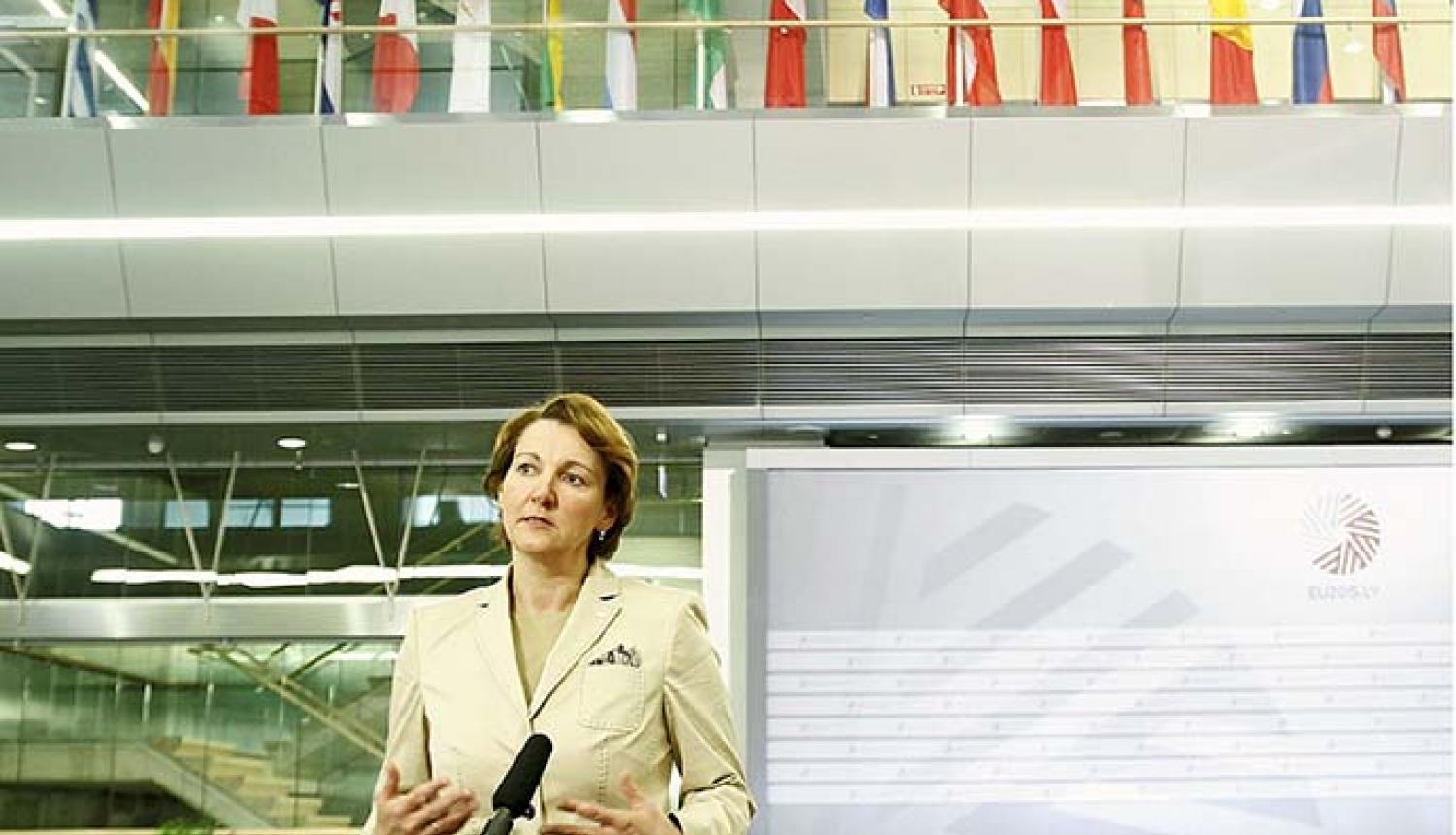Over 40 delegations came together in Riga on 22 June at the meeting of Ministers in charge of Vocational Education and Training (VET), the European social partners and the European Commission to address workforce challenges. The first part of the meeting concluded with the endorsement of the Riga Conclusions, a declaration that sets medium-term deliverables in VET until 2020. The afternoon session was also attended by representatives of VET schools, employers and employees – 320 people in total. 40 companies signed a pledge to join the European Alliance for Apprenticeships, thus opening up 140 000 new apprenticeships and training opportunities for young Europeans.
Entitled Innovating for the Future of VET, the meeting was chaired by Ms Mārīte Seile, the Latvian Minister for Education and Science. “Innovation and excellence have traditionally been associated with higher education and research. Today, however, innovation is not an end in itself, but a necessity of life, and the Latvian Presidency sees VET as part of the innovation system. It is wrong that discussions have overlooked this issue so far,” says Minister Seile.
The declaration aims to promote investment in work-based learning by involving social partners, companies, chambers and VET providers, as well as by stimulating innovation and entrepreneurship; to further develop quality assurance mechanisms in VET; to enhance access to VET and qualifications for all through more flexible and permeable systems; to further strengthen key competences such as language skills and digital literacy in VET curricula; and to introduce systematic approaches to, and opportunities for, the initial and continuous professional development of VET teachers, trainers and mentors in both school and work-based settings.
“The commitment shown today in Riga by EU Ministers, companies, social partners and other organisations sets the pace for putting enhanced vocational education and training systems at the heart of Europe's skills agenda. Apprenticeships are part of the solution to Europe's unemployment crisis and the European Alliance for Apprenticeships is a useful tool to strengthen their supply, quality and image among Europeans,” says Ms Marianne Thyssen, the European Commissioner for Employment, Social Affairs, Skills and Labour Mobility.
Apprenticeships are seen as part of the toolkit to tackle the challenge of youth unemployment in Europe. There are currently more than 6 million young people unemployed in the European Union, but businesses point at difficulties in finding employees with the necessary skills and stress the need to shorten the gap between skills provided and skills needed. To boost the competitiveness of work-based learning, Latvia, Lithuania and Estonia – the three Baltic countries – signed today a Declaration of Intent to lay the foundations of a Baltic Alliance for Apprenticeships.
Riga Conclusions (.pdf)
Photo: EU2015.LV



